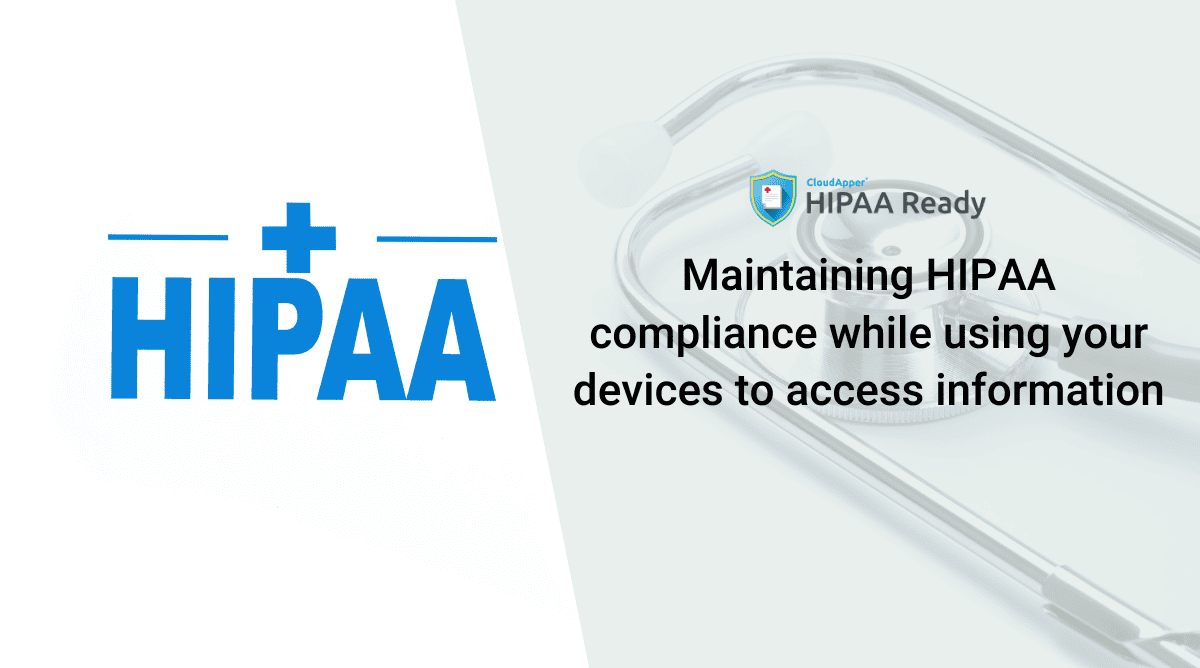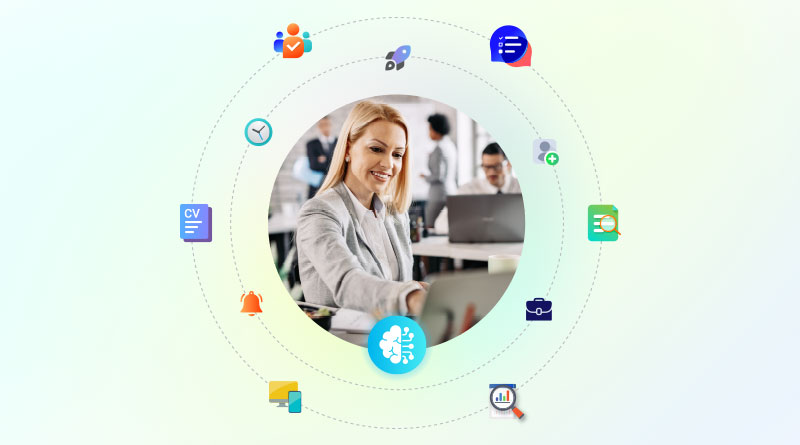Table of Contents
It has been 24 years since the Health Insurance Portability and Accountability Act (HIPAA) was successfully approved by the United States Department of Health and Human Services, and 17 years since the Security and Privacy rule amendments. HIPAA compliance is still an important regulation that healthcare institutions and business associates must follow today to protect patient data.
Modern laptops, cell phones, tablets, and portable medical devices easily create an always-connected ecosystem to cloud computing services, making healthcare workers much more mobile in their daily lives. This simplifies the doctor’s or physician’s life, but also raises certain compliance, security, and HIPAA concerns.
Any medical professional device that includes or has access to electronically protected health information (ePHI) is subject to HIPAA’s administrative, technical, and physical safeguards. Securing these devices is a necessary and legally binding responsibility for both the healthcare institution and the cloud service provider.
Securing the device
The first line of defense is to put a strong security layer on the medical device. Any cell phone or business laptop given to healthcare staff must be built securely by the technology distributor, which is usually an IT department or a HIPAA-compliant cloud hosting partner. The design must include the necessary safeguards to prevent theft and data loss.
For added security, every portable device should be secured using the Advanced Encryption Standard (AES), preferably with at least 256-bit encryption. AES scrambles the data on the disk, making it only readable if the decryption key is used. If the user does not have the decryption key, the data becomes unreadable. Combining encryption with power-on passwords and a strong password policy that is updated and enforced regularly by directory services is a wonderful place to start.
At the network layer, encryption is also required. HIPAA regulations require that ePHI be encrypted when sent over a network. The most typical way is to set up a secure VPN. A site-to-site VPN should already exist between the computing infrastructure, which is often found in the data center of a cloud provider, and the healthcare organization’s private network.
After that, the VPN can be stretched to connect to laptops, cell phones, and medical devices. This technology is ideal for remote working since it establishes a secure private network between all devices, servers, and endpoints. In general, the end-user experience is identical to that of being inside the corporate network. The only method to ensure that ePHI data is encrypted is to use a VPN. This is performed by encrypting all traffic before transmission and then using TLS ciphers at the transport layer.
Implement TLS certificates
TLS (Transport Layer Security) has replaced the now-deprecated SSL security certificate protections. These certificates establish trust between two endpoints, assuring that the endpoint is authentic and that data transmitted between the two endpoints is encrypted with an unbreakable hash. This means that no one can intercept, snoop on, or modify network data.
HIPAA allows the use of any TLS version, however, TLS1.2 or higher is preferred. TLS can be used to protect healthcare email systems, cloud applications, payment systems, and intranet sites. A web browser is used by many medical applications. TLS security guarantees these sites and gives developers more creative freedom when creating ePHI apps.
Network security
The most influential technique to ensure HIPAA compliance on an endpoint device is to uphold and maintain the network’s integrity. A business associate, such as a cloud service provider, often manages the network and has responsibility and control for the complete network stack.
The healthcare organization can map, track, and trace ePHI data usage on the network by utilizing centralized network management. Identifying where ePHI is located on the infrastructure is a critical requirement for compliance, as is identifying who has access to the data.
When unexpected access is gained, network intrusion protection systems (IPS) send an alert. Perhaps a file was accessed in the middle of the night, which is unusual, or warnings were triggered when ePHI was saved to the wrong server in error. Monitoring network activity using AI-based SIEM tools enables proactive, intelligence-based user device monitoring.
Secure that cell phone
Healthcare professionals use a significant number of cell phones and mobile devices. They are a critical resource in medicine, but they also pose one of the most major security challenges. Cell phones are easily misplaced and stolen. It is mandatory to ensure that mobile devices are encrypted and have suitable security features such as PIN and fingerprint locks.
Remote wipe capabilities are also highly recommended. The feature is required for tracking cell devices and is relatively simple to implement. Mobile phone separating systems support a variety of security features, including VPN and remote wipes. Essentially, the cell devices are managed in-house. When a phone is reported stolen, the IMEI is traced using specialized software, and an engineer can then choose whether to trace the phone or simply wipe all data on the phone.
To summarize, utilizing your device to access ePHI and analyze sensitive data is an essential part of a healthcare worker’s job. Mobile technologies and digital devices have helped in the medical revolution. The way healthcare is provided is also evolving. Since the COVID-19 epidemic, healthcare professionals have had to adapt, resulting in user devices being an absolutely essential tool for providing healthcare services to individuals in need.
However, it is crucial to remember that if not properly controlled, digital devices are the weakest link in security. Consequently, to maintain HIPAA compliance, endpoint devices must be secured in line with the HHS‘s required and recommended safeguards.
What is CloudApper AI Platform?
CloudApper AI is an advanced platform that enables organizations to integrate AI into their existing enterprise systems effortlessly, without the need for technical expertise, costly development, or upgrading the underlying infrastructure. By transforming legacy systems into AI-capable solutions, CloudApper allows companies to harness the power of Generative AI quickly and efficiently. This approach has been successfully implemented with leading systems like UKG, Workday, Oracle, Paradox, Amazon AWS Bedrock and can be applied across various industries, helping businesses enhance productivity, automate processes, and gain deeper insights without the usual complexities. With CloudApper AI, you can start experiencing the transformative benefits of AI today. Learn More



























